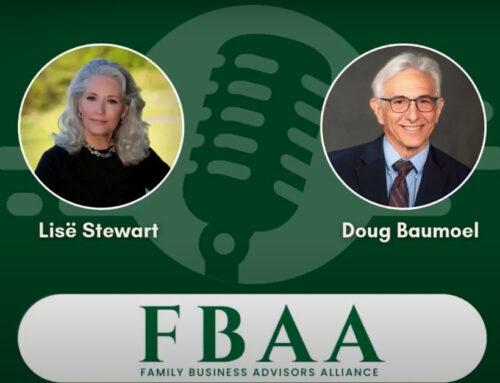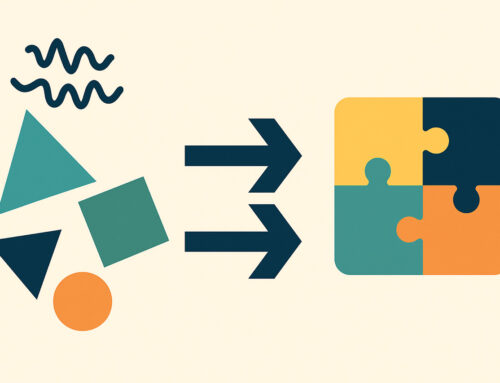“He who cannot forgive others breaks the bridge over which he must pass.” – Confucius
Getting Past Long-Held Grudges Takes Time
It’s very common for members of family owned businesses to become bogged down in past conflicts, creating what we call “historical impasse”. These are disputes that remain problematic and continue to impact present-day relationships. When this happens, families often get stuck in unproductive behavior patterns. They’re still holding onto hurtful issues that happened a decade, or even a generation ago. If a family is to get beyond these hurts, they need to explore a process of education about forgiveness. And all affected should be involved.
The key to releasing blame in a family business is for all parties “stuck” in the stalemate to acknowledge their hand in it. But that’s not enough, they each need to reaffirm the importance of the relationship as well. This takes work in large part by “a conflict manager.” Laying the ground word for everyone involved is key, and can be a challenge. All parties involved need to feel safe and certain that they’re voice is heard. The work of ‘releasing blame’ requires a laundry list of items that starts with detailed story-gathering or meetings with one, two or more individuals. This helps establish the ground rules for how the family members express their stories and hurts once everyone meets again. It’s about creating a shared narrative. This is extremely useful in helping a family to understand, work through and ultimately integrate the “stuck” feelings or conflict into the NEW shared narrative. This is a learning opportunity… a teachable moment and could be a turning point the family history of ‘ole.
One useful approach to releasing blame for family relationships comes from the book How Can I Forgive You: The Courage to Forgive, the Freedom Not To, by Janis Abrahms-Spring, PhD. Though Dr. Spring wrote her book primarily for married couples who want to stay married despite a serious transgression such as infidelity, it is quite effective for family relationships. Historical Impasses that develop in family business can feel akin to that level of betrayal. In her book, Dr. Spring identifies four choices one can make regarding forgiveness:
Types of Forgiveness
-
- Refusing to Forgive: Yes, this is a choice, and to have all parties come to the table willingly means that they must make the choice to do so. When faced with a choice of maintaining a grudge and having to go through an uncomfortable, highly emotional forgiveness process, we find that, for some stakeholders, learning about forgiveness choices and processes offers new perspectives in which the old grudge seems less urgent and less important to maintain.
- Cheap Forgiveness: Forgiving because it’s supposedly good for you, or because you feel compelled to by your religion or community norms.
- Genuine Forgiveness: A process requiring equal vigilance from both sides, involving introspection, communication, and development of a shared vision for a continuing relationship.
- Acceptance: Acknowledging your contribution to the impasse and forgiving yourself, and accepting a compromised relationship with the transgressor.
The Role of Apology
It is not an oversight that apology is not specifically mentioned in the above list – and it’s not because love means never having to say you’re sorry. The role of apology in forgiveness is complicated. A misguided or superficial apology can often make matters worse. Yet the right apology, at the right time, within the context of genuine forgiveness can do wonders for the reestablishment of stalled communication.
Likewise, monetary fixes can swing both ways. For example, throwing money at a problem can deepen an impasse and add insult to injury. Or, thoughtful, consensually-negotiated fixes that try to right historical wrongs can be catalysts that move relationships beyond the feelings of being ‘stuck’.
Forgiveness, or the releasing of long-held blame, can take a very long time. Fortunately, for many families, the realization that there is a process to move away from blame and to achieve forgiveness, or even a level of acceptance, takes the edge off long-held grudges and helps offended parties move forward. A Conflict Manager can make great gains with their clients by promoting productive conversations around the theme of forgiveness.
-CFBC
READ MORE ON CONFLICT MANAGEMENT.
Stay in the Know
Get our latest articles, tips, and insights delivered straight to your inbox.
Share this Insight, choose your platform!
About Us
Continuity Family Business Consulting is a leading advisory firm for enterprising families. Using a full suite of service capabilities, we help families prevent and manage the single greatest threat to family and business continuity: conflict. It is through this lens that we advise our clients and build customized strategies for succession planning, corporate governance, family governance, and more. We help families improve decision making, maximize potential and achieve continuity. To inquire, contact us.













